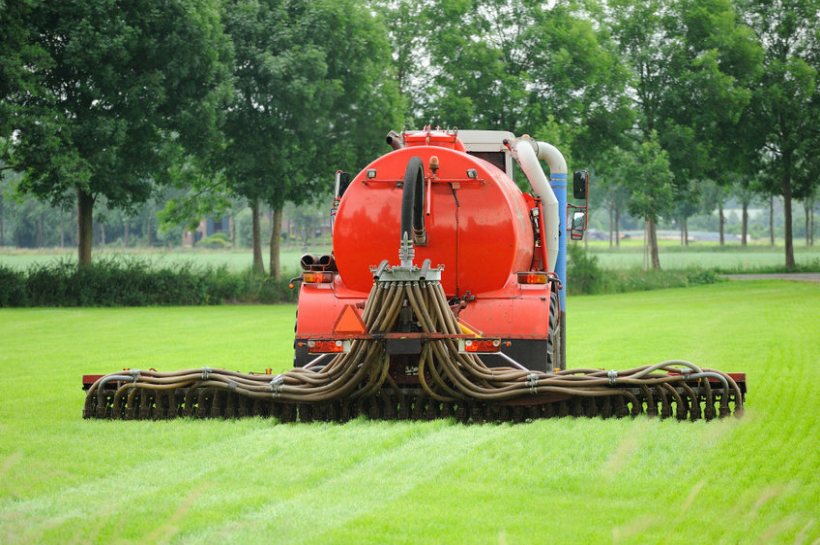
A new survey of hundreds of farmers has highlighted the ongoing damaging impacts of the Welsh government's strict water quality regulations.
The costs many farms have had to suffer in order to comply with the nitrate vulnerable zone (NVZ) rules, rolled out gradually since 2021, have been laid out.
NFU Cymru's survey of over 400 farmers also underlines the 'unworkable' record keeping requirements and the low levels of confidence in the Water Resources (Control of Agricultural Pollution) Regulations.
Of the 65% of farmers who had either already invested in infrastructure or were planning to imminently, 30% said it had come at a cost of over £100,000, with 12% stating the cost was over £200,000.
Of those 146 farmers who had already invested in infrastructure to adhere to the rules, less than 40% had received grant support towards the costs, citing the lack of availability of support and the complexity of the application process.
Almost half of farmers said they had required planning permission to reach compliance with the regulations and the feedback received clearly stated the difficulties farmers had endured with this process.
The union's survey highlighted key issues with the rules relating to record keeping, the storage requirements, closed periods and nitrogen limits.
The record keeping requirements attached to the regulations were criticised; nearly 77% of farmers found the ongoing day to day recording of data ‘very difficult’ or ‘fairly difficult’.
In fact, only a quarter of farmers said they had not required any support from an adviser or consultant to assist with the record keeping elements.
Just under three quarters of the farmers polled did not believe the agricultural pollution regulations would lead to an improvement in water quality. Just 2% said that they had already seen improvements.
A clear majority (84%) of respondents identified that the closed periods for the spreading of organic manures with high readily available nitrogen and manufactured fertilisers were having a negative impact on their businesses.
Over a third (38%) of farmers told NFU Cymru that their farm had been impacted by the 170kg/N/Ha limit from livestock manures - this increased to 69% of dairy farms.
Of those affected farmers, almost half (48%) had needed to reduce livestock numbers, while 51% said they had rented or bought additional land in order to comply.
NFU Cymru water quality review group chairman, Martin Griffiths said the results of the survey showed that farmers were experiencing a range of negative impacts of the regulations.
He said: "The survey also shows that farmers continue to question the effectiveness of the regulations, as well as the appropriateness and benefit of applying the regulations across the whole of Wales.
“The survey has highlighted farmer concerns that the inflexibility within the regulations, in particular the closed periods inhibit their ability to make decisions about field activities, including spreading, appropriate to the prevailing growing, weather and ground conditions.
"This reinforces NFU Cymru’s long held view that the ‘farming by calendar’ approach does not work in a changing climate."
NFU Cymru said the Welsh government should adopt an 'evidenced-based approach', with the regulations being targeted to those areas where improvements to water quality had been shown to be needed.
The union added that a long-term sustainable solution was now urgently needed to allow farmers to operate above the 170 kg/N/ha limit from livestock manures from 2025 onwards.
Mr Griffiths concluded: “It is a source of significant regret to us that, almost four years after the introduction of the regulations, the serious concerns expressed by NFU Cymru are being borne out on farms across Wales."
